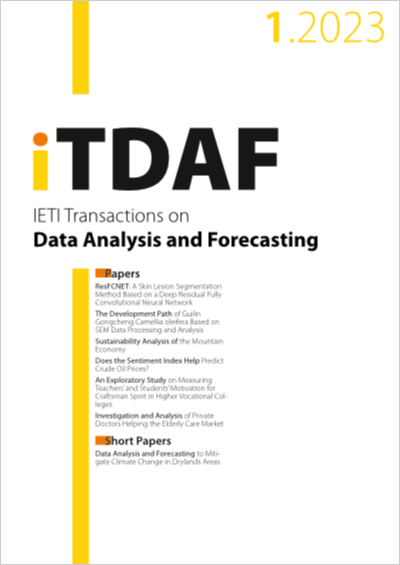ResFCNET: A Skin Lesion Segmentation Method Based on a Deep Residual Fully Convolutional Neural Network
DOI:
https://doi.org/10.3991/itdaf.v1i1.35723Keywords:
deep learning, fully convolutional network, image segmentation, melanoma, residual learningAbstract
Melanoma, a high-level variant of skin cancer is very difficult to distinguish from other skin cancer types in patients. The presence of large variety of sizes of lesions, fuzzy boundaries and irregular shaped nature, with low contrast between skin lesions and surrounding fresh areas makes it clinically difficult to detect and treat melanoma. In this paper, we propose Residual Full Convolutional Network (ResFCNET) skin lesion recognition model that combines residual learning and full convolutional network to perform semantic segmentation of skin lesion. Based on secondary feature extraction and classification, experiment was done to verify the effectiveness of our model using ISBI 2016 and ISBI 2017 dataset. Results showed that residual convolution neural network obtain high precision classification. This technique is novel and provides a compelling insight for medical image segmentation.
Downloads
Published
How to Cite
Issue
Section
License
Copyright (c) 2023 Mustapha, Prof.Asante, Dr.Alornyo, Bernard

This work is licensed under a Creative Commons Attribution 4.0 International License.


